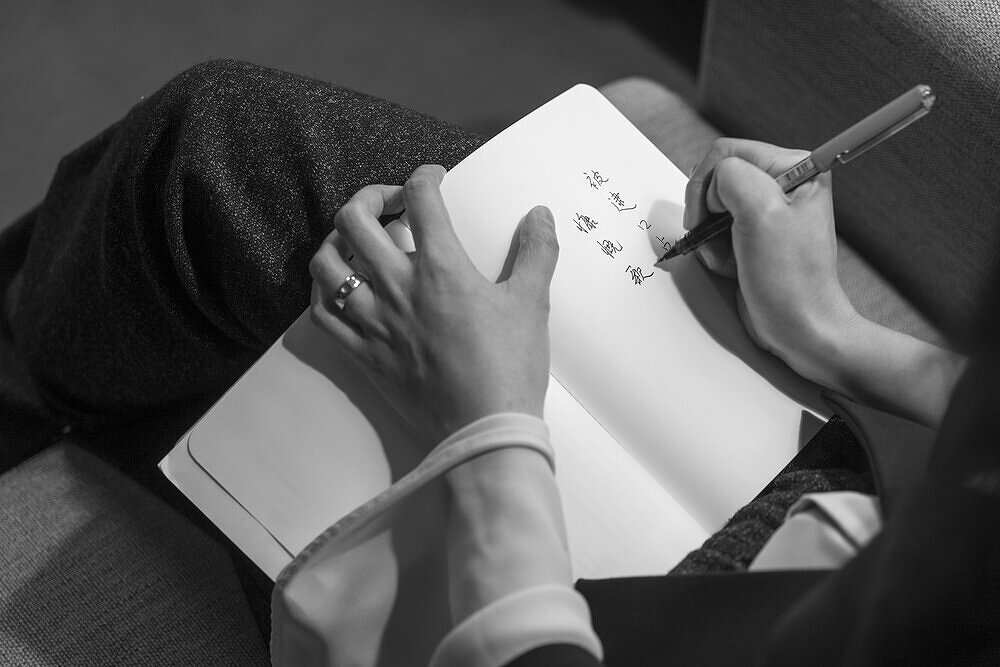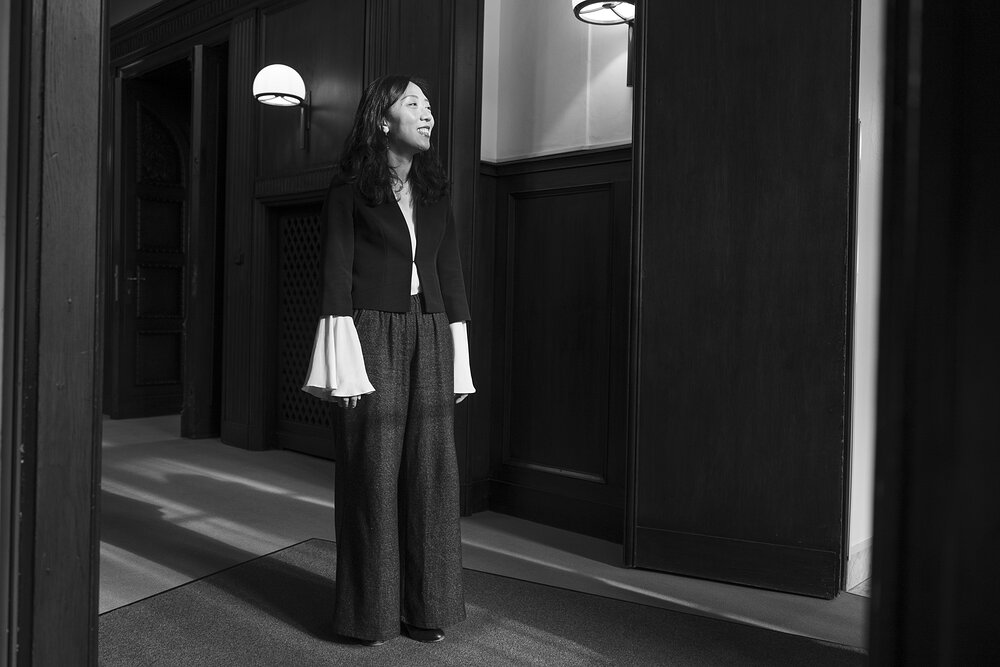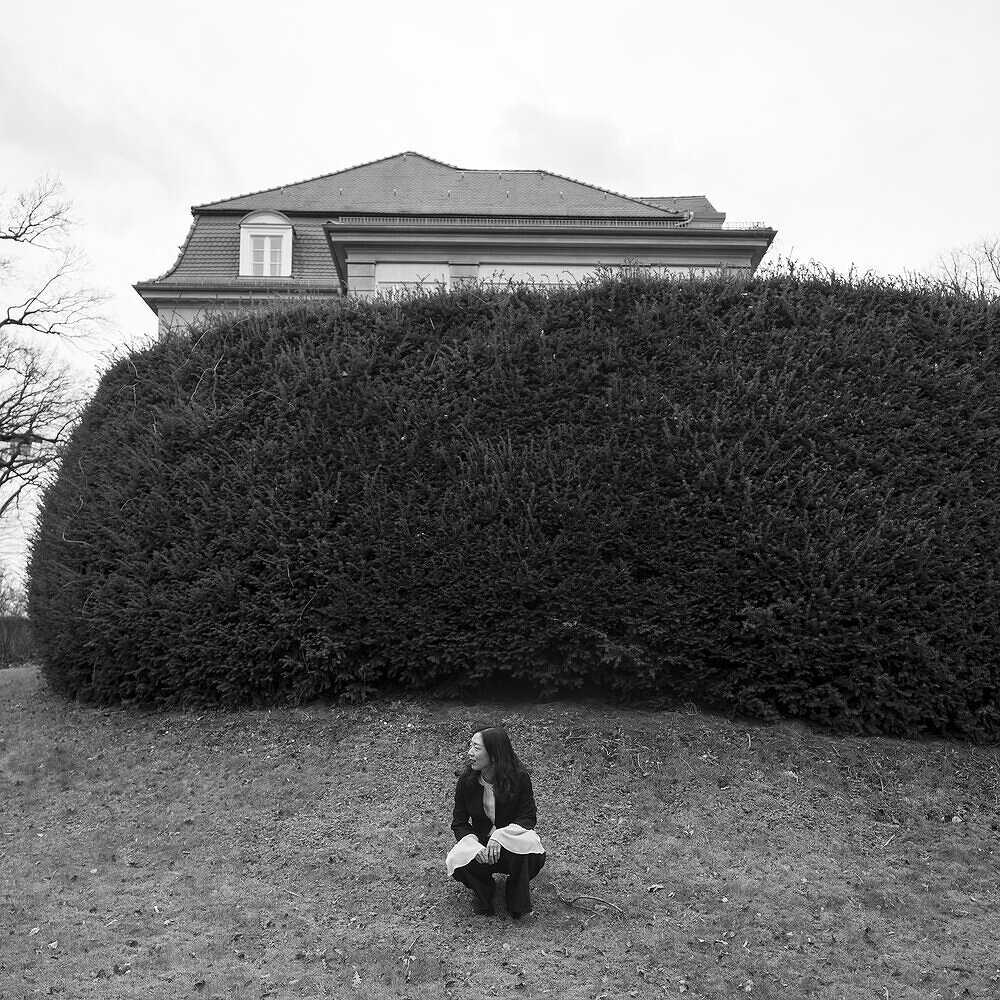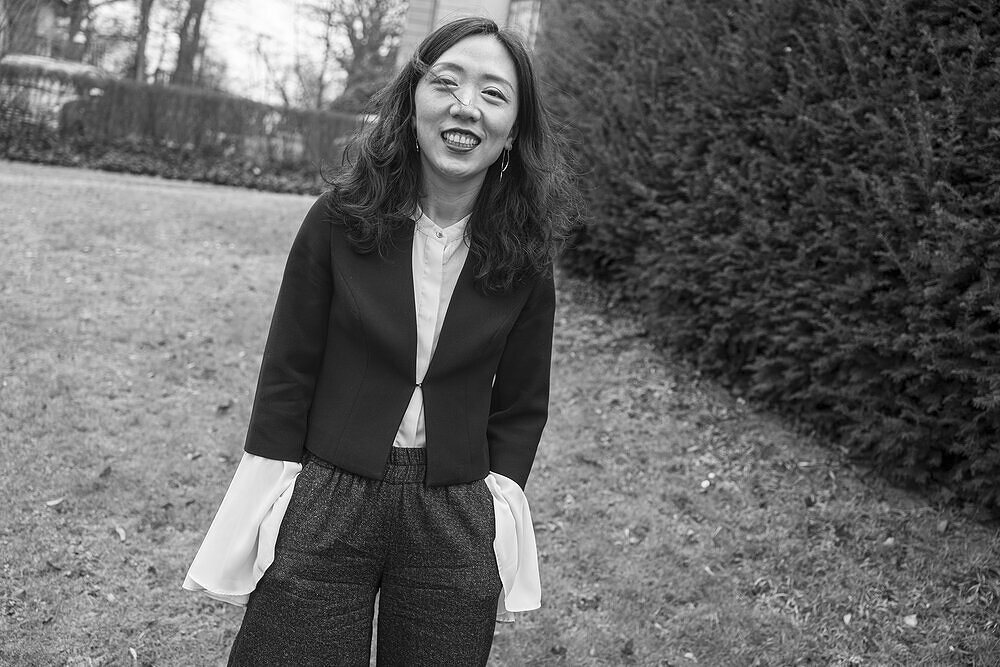Issue 15 / June 2020
The Latent Life of a Counter-Memory
by Sonja Asal
Zhiyi Yang is a professor of sinology at Frankfurt’s Goethe-University. Her work on the early 20th century poet Wang Jingwei – also political party founder, Japanese collaborator, and secret hero to dissidents of today’s China – is a project of transdisciplinary scope
In the past year, on its “Sina Weibo” microblogging website (the Chinese answer to Twitter), the Chinese People’s Liberation Army posted two poems with the propagandistic intent to glorify the self-sacrificing impulse of the republican revolutionaries. Yet it very quickly emerged that the author was Wang Jingwei, one of the most contested figures in twentieth-century China. The poems were penned in 1910 while Wang was awaiting execution for a failed assassination attempt on the prince regent. Wang was initially a close associate of Sun Yat-sen and leader as well as co-founder of the Revolutionary Alliance (predecessor of Kuomintang or Chinese Nationalist Party), after Sun’s death he was broadly perceived as Sun’s political heir and engaged in a political rivalry with Chiang Kai-shek, and during the Second World War he was head of state under Japanese occupation. In the China of today, Wang is officially regarded as a traitor and his poems have been banned from school primers and academic research. As soon as the Sina Weibo blunder became apparent, the poem was deleted from its website; the army explained the gaffe as having been committed by an editor who had insufficient cultural education.
Zhiyi Yang is spending her year at the Wissenschaftskolleg in completing a book on just this proscribed poet-politician Wang Jingwei, and she recounts all the above with palpable relish. She believes it is primarily owing to the literary quality of Wang’s poem that it has survived in the collective Chinese memory and enjoyed a life of its own independent of the officially sanctioned canon. As an accomplished poet, Wang Jingwei was in a centuries-old tradition of bureaucratic elites whose education was a prerequisite for their high position and who were thus agents of literary culture. Such cultural elite-formation not even stops at someone like Mao Zedong - we read of this kind of thing every few years in the newspaper, most reliably when a fallen dictator is thrust into the limelight by virtue of his poetic ambitions and historic idols are needed. For Mao, in diametrical opposition to his own cultural policy, wrote not only poems but employed the classic Chinese form. Can Wang suffer comparison with Mao in this respect? Yang waves aside this suggestion, Mao’s poetry was in an entirely different tradition, you can detect a heroic and even imperial tone. In Wang’s poetry, by contrast, an individual is placed in relationship to history and the modern world, and Yang finds that the best of his poems are nothing short of modern classics. Since his poetry speaks in the voice of a patriot, it also posits questions on the boundary between wartime collaboration, accomodation, and resistance.
In elucidating this, Yang expounds at some length and our conversation spans a thousand years of Chinese literature and history, while touching upon the latest cultural theories as well as contemporary politics. Luckily for this reporter, all her wide-eyed inquiries are answered with consonant patience and a wealth of information, and Yang gracefully offers that there is nothing more inspiring than to view one’s own culture through the eyes of another.
In the course of her academic career on three continents she herself has made this outsider perspective on Chinese literature her own. Her credo is that it is absolutely necessary to take an intercultural approach when reading a text in a modern way. As a Chinese-born woman and completing her undergraduate work at Peking University, she took her first great step in this intercultural direction by obtaining her PhD from Princeton, and her dissertation was on a solidly classic theme: Su Shi (1037-1101) the quintessential poet of the Song Dynasty. The poetry of Su accompanied Yang throughout her childhood. Her father was a teacher who recited the poems to her as a little girl, and later she read them for herself time and again in school and at the university. She carried Su in her heart when she traveled to the United States, and in her first book she employed a post-Romantic aesthetic to analyze the famous immediacy of Su’s poems, her goal being nothing less than to rediscover the philosophical relevance of his poetry to the modern age.
Especially in the early twentieth century such a voyage from East to West – or more specifically from the Pacific to the Atlantic coast – was undertaken by young and then primarily male Chinese scholars. One of these was Hu Shih, who studied under John Dewey at Columbia University, where he received his PhD in philosophy. Hu had a great impact on the New Cultural Movement, which not only questioned traditional Chinese values in light of Western modernity but advocated a simplification of Chinese literary language and sought to modernize Chinese poetry by moving vernacular literature closer to the spoken language.
Yang’s multi-perspective notion of cultural exchange is best understood in contrast to that of a Hu Shih. Like many of his contemporaries, Hu devaluated Chinese culture in light of alleged Western achievements, whereas for Yang it is the mutual perspectivation that is enriching. Since Hu Shih’s time a century of cultural, ideological and political sobering has elapsed. As for the present situation in China, Yang judges communism to no longer be the driving force; instead she sees the current form of government to be authoritarianism in a classic form. Yet she also tenders the observation that the intended technocratic management of society, whose main goal is economic development, dovetails with a resuscitation of traditional values and practices.
History does not move in a straight line but rather in a zigzag pattern. At start of the twentieth century the modernization of literary language came up against a countermovement when the poets who consolidated as the so-called South Society or Nanshe, the last great association of poets in the early twentieth century, of which Wang was also a member, undertook literary experiments on the basis of the classic form – and they had the paradoxical experience of seeing themselves labeled conservative even if they were bent on reform. It was a time when literary language was undergoing a strong ideologization – the vernacular language was regarded as progressive, the classic language as conservative.
And now begins the adventurous story of how Wang Jingweis’ poetry succeeded in coming down to us in the present day through hidden underground paths. Culture and education in China is still based to an unmatched degree on rote learning and oral tradition. When Yang recites classic Chinese verse – even if you don’t understand a single word of Chinese – you hear how the catchy rhythm might give a mnemonic assist. The poems of Wang Jingwei’s which an ignorant editor posted on the internet are also part of the Chinese oral tradition, easy to memorize and often evoked and referring back to a time when Wang was celebrated as a figurehead of the 1911 nationalist revolution. Yang asserts that the combination of modern content and classic form renders Wang’s poetry extremely adept at slipping by censors – and she then somewhat surprisingly adds that Mao’s employment of classic form in his own poetry made it all that easier to be disseminated through the new mass media.
Yang has traveled the scholarly road from medieval to modern poetry, her main interest presently, but this was a shorter journey than one might imagine. She uses the term “modern classicism” in describing the afterlife of classic forms. Although a concept such as classicism may seem very canonic, Yang regrets that there has been relatively little research done on classic-modern poetry, and this is all the more true for the work of a collaborator with the Japanese. In Yang’s view there seems to evolve merely a guarded interest in classic-modern poetry among Chinese- and English-language scholars.
How exactly does one approach a figure such as Wang Jingwei? Yang has no desire to rehabilitate him – even if she stresses that he is not the traitor they make him out to be in China. His afterlife is too complex a tale, one that oscillates between poetry and history and memory – but in all events the starting point must be Wang’s poetry, which Yang presumes was Wang’s own understanding of his bequest, since he decreed that after his death it should not be his speeches or essays (upon which his fame also rested) that should be published but solely his poetry. Important to any real understanding of Wang is to integrate the poetry into a discussion of the poet, since in Yang’s view the verse was not intended for a select coterie but was a way of communicating with the Chinese public at large. Employing some lingo from literary theory, Yang states that it is first poetry which creates the world-encompassing space between author and reader.
It is impressive how effortlessly this specialist in classic Chinese poetry interweaves the ideas of such thinkers as Paul Ricoeur and Julia Kristeva with her own, and before long she has arrived at the topic of historiography, finding it unfortunate that historians have neglected poetry. Taking the solution to the problem in her own hands, in 2012 Yang went from Princeton to Frankfurt on the Main (where she presently teaches sinology) and embarked on a journey paying visits to historical archives around the world. With varying degrees of success. In mainland China a scholar’s access to documents from the time of Japanese collaboration is strongly subject to the political climate. But her search was successful not only in Taiwan but the United States, Japan, Germany and France. Wang had intensive links with the West, he lived in France from 1912 to 1919 (with brief interruptions) and had numerous contacts in Germany – nexuses which have recently come to light due to Yang’s efforts.
But what historical research had no access to or could only get by obtaining certain pertinent documents – were the moral ambiguities and conflicts not only inherent to the protean poet Wang but permeating the entire epoch. His poems therefore convey a cultural memory which is fundamentally different from the gussied-up image that the official propaganda attempts to disseminate. Yang believes that the Second World War not only left China and Japan with two separate national narratives but they emerged from the conflict with different understandings of war guilt and moral responsibility. Yang sees Wang’s late poetry as also being a self-interrogation which may constitute an opening for bridging this gap. This is what she means when she says that literature imparts not only personal but collective memories of a certain time.
Does Yang believe that in mainland China her work can help bring renewed attention to Wang and perhaps even modify his image? She says she has no illusions on that count. In mainland China it is extremely difficult to publish work on cultural production during the Japanese occupation, China persistently edits out this part of its national history in the official historiography, so any Chinese-language publication of her book would likely take place in Tawain.
But perhaps, Yang adds, an academic publication is not quite the medium for making an impact on a country’s memory culture. And it is one of her abiding delights that Wang’s poetry can get along just fine without any such scholarly assistance. In Yang’s opinion the latent survival of Wang’s work is the best example she knows of an emerging counter-memory. In her research she has combed internet forums and blogs, schoolbooks and films, and discovered far more than she could ever have imagined. Wang’s poetry is ubiquitous even if it isn’t immediately to view – for instance in Ang Lee’s 2007 film Lust, Caution – or where you would least expect it: like on the website of the Chinese People’s Liberation Army.
More on: Zhiyi Yang
Images: © Maurice Weiss




